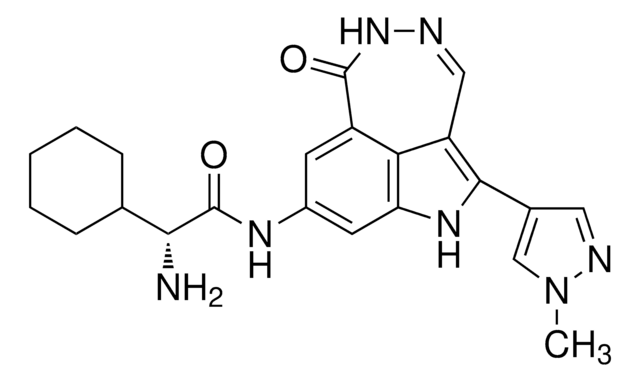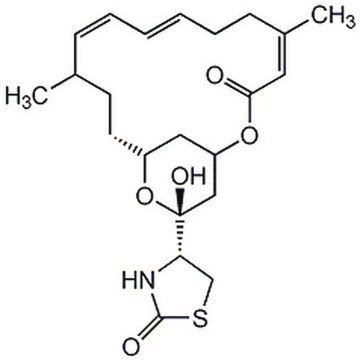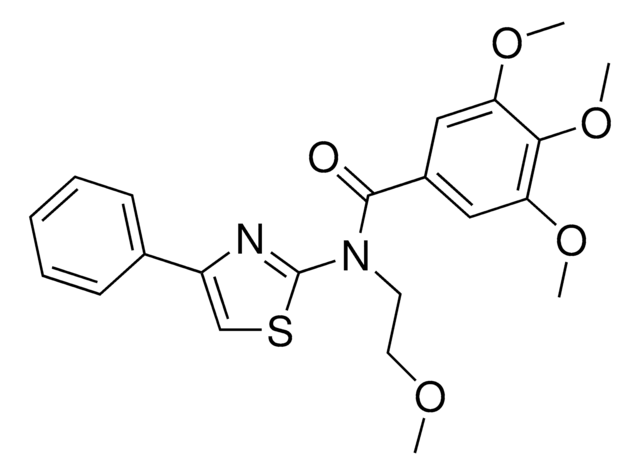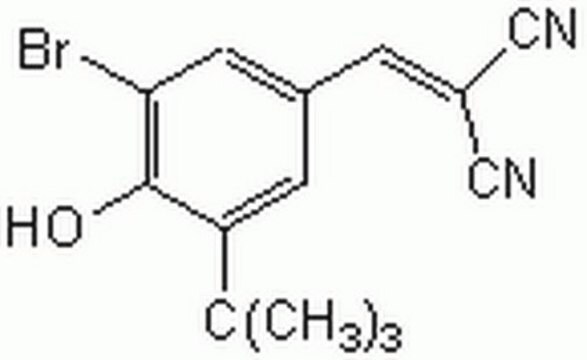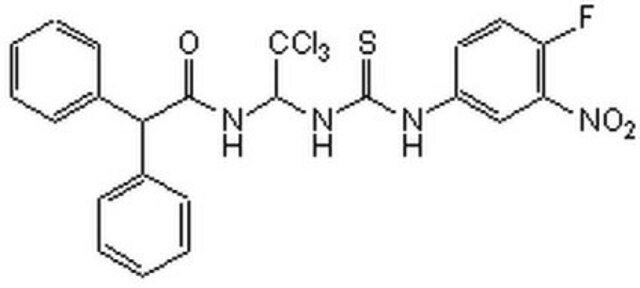435930
LIM Kinase Inhibitor I, LIMKi 3
The LIM Kinase Inhibitor I, LIMKi 3 controls the biological activity of LIM Kinase. This small molecule/inhibitor is primarily used for Phosphorylation & Dephosphorylation applications.
Synonym(s):
LIM Kinase Inhibitor I, LIMKi 3, N-(5-(1-(2,6-Dichlorophenyl)-3-(difluoromethyl)-1H-pyrazol-5-yl)thiazol-2-yl)isobutyramide
About This Item
Recommended Products
Quality Level
assay
≥95% (HPLC)
form
powder
manufacturer/tradename
Calbiochem®
storage condition
OK to freeze
protect from light
color
beige
solubility
DMSO: 100 mg/mL
shipped in
ambient
storage temp.
2-8°C
SMILES string
ClC1=CC=CC(Cl)=C1N2N=C(C=C2C3=CN=C(NC(C(C)C)=O)S3)C(F)F
InChI
1S/C17H14Cl2F2N4OS/c1-8(2)16(26)23-17-22-7-13(27-17)12-6-11(15(20)21)24-25(12)14-9(18)4-3-5-10(14)19/h3-8,15H,1-2H3,(H,22,23,26)
InChI key
IVUGBSGLHRJSSP-UHFFFAOYSA-N
General description
Biochem/physiol Actions
LIMK1 and LIMK2
AMPKA1, AMPKA2, DDR1, PAK3, DCAMKL2
Packaging
Warning
Reconstitution
Other Notes
Ross-Macdonald, P., et al. 2008. Mol. Cancer Ther.7, 3490.
Legal Information
Storage Class
11 - Combustible Solids
wgk_germany
WGK 2
flash_point_f
Not applicable
flash_point_c
Not applicable
Certificates of Analysis (COA)
Search for Certificates of Analysis (COA) by entering the products Lot/Batch Number. Lot and Batch Numbers can be found on a product’s label following the words ‘Lot’ or ‘Batch’.
Already Own This Product?
Find documentation for the products that you have recently purchased in the Document Library.
Our team of scientists has experience in all areas of research including Life Science, Material Science, Chemical Synthesis, Chromatography, Analytical and many others.
Contact Technical Service